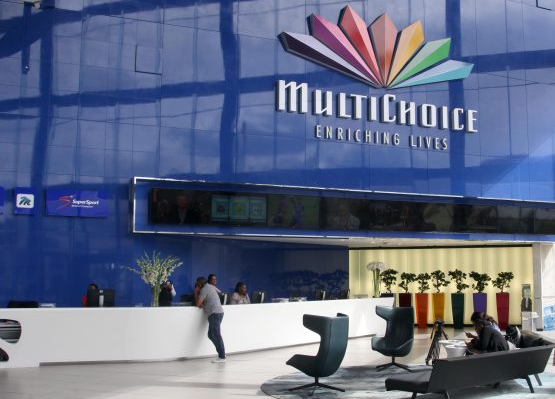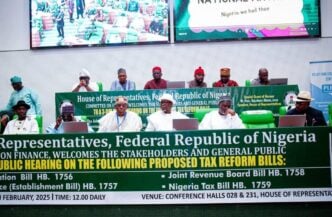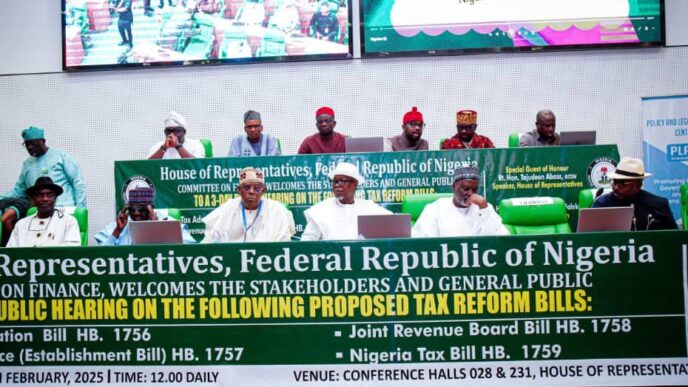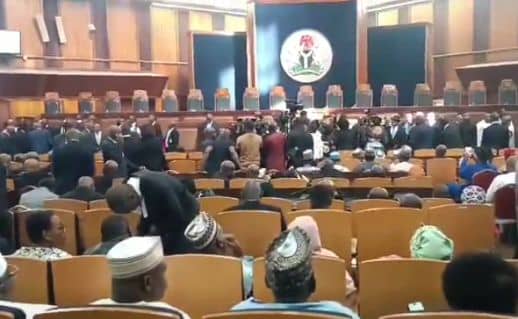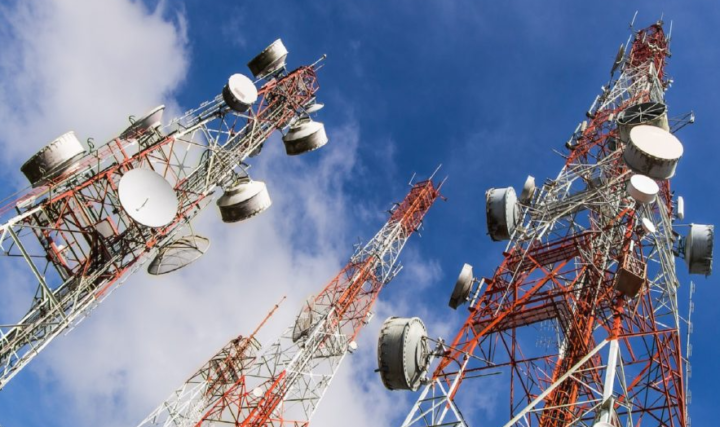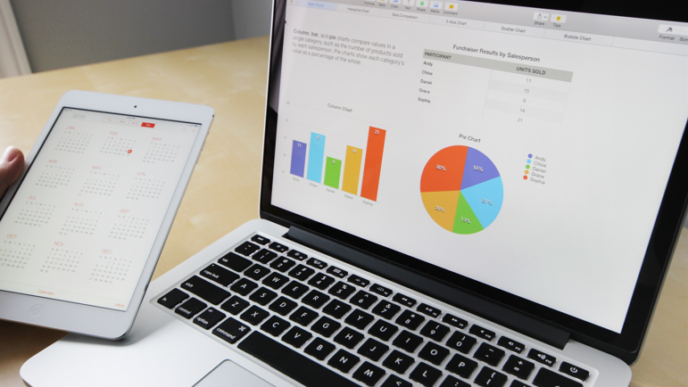BY ERNEST NDULUE
Pushing the public interest is never easy when vested interests are entrenched. In fighting back, those whose privileges are so endangered will spare no cost and go any length to draw a red erring and engage in subterfuge.
There is no better illustration of such contestation than the seeming orchestrated media attack on the Federal Competition and Consumers Protection Commission (FCCPC) since its recent intervention on behalf of long-suffering Nigerian consumers following the announcement by cable television giant, Multichoice, to jack up subscription fees yet again when consumers were just beginning to adjust to another increment not too long ago.
Only last week, the FCCPC had summoned Multichoice to explain the rationale for this latest hike, but the cable company asked for a week grace to appear. Naturally, FCCPC then directed that Multichoice should stay action on the price hike scheduled to take off on March 1, as a mark of good faith.
But rather than obey, Multichoice dared the agency of the Federal Government by implementing the increment. Where does this sort of impunity happen?
Advertisement
So, after reading two articles on two online platforms more less echoing one another — almost word for word — barely 24 hours after Multichoice’s act of impunity, I could not help but laugh at such a poor effort at sponsored punditry. The two articles under reference are as follows: “MultiChoice, Price Hikes, and FCCPC” by Casmir Igbokwe, published in NewsProbe, and “MultiChoice Price Adjustments: FCCPC and Same Old Song” by Kolade Ogunsakin, published in The Cable.
Honestly, the two pieces would have been ignored in the spirit of intellectual freedom if not that I think they grossly misrepresented the regulatory actions of the FCCPC. Almost using the same words, both argue that the Commission is unjustly interfering in MultiChoice Nigeria’s subscription price increases, portraying its intervention as unnecessary, overreaching, and even selective. However, these criticisms mischaracterise the FCCPC’s statutory mandate, which is to ensure fair competition, prevent exploitative pricing, and protect Nigerian consumers from market abuses.
The articles expose the writers’ poor understanding of the competition and consumer protection landscape, as well as the operational realities of the FCCPC. Expectedly, while projecting the picture of “persecution” of their client, the writers conveniently ignore MultiChoice’s overwhelming control of the pay TV industry. Hence, its rather carnal obsession with jacking subscription fees almost regularly. If one may ask: what could be a reasonable justification for raising rates again barely few months after a similar exercise was conducted? Only Shylocks act like that.
Advertisement
Around the middle of 2024, MultiChoice Nigeria had implemented a price increase for its DStv and GOtv services, citing “rising operational costs”. At that time, the Nigerian economy was grappling with significant challenges, including currency depreciation and high inflation, which impacted businesses across various sectors. However, since then, several economic indicators have shown improvement. The naira has stabilised, with exchange rates maintaining consistency over recent months. Additionally, fuel prices have come down, easing some of the cost pressures on both businesses and consumers.
Despite these positive trends, MultiChoice announced another price increase in February 2025, effective March 1, attributing the hike yet again to “increased operational costs”. This decision raises questions about the justification for the price adjustment, given the improving economic environment. It underscores the need for regulatory oversight to ensure that such price increases are not exploitative and that consumers are protected from potential market abuses.
Again, the suggestion that consumers can simply switch service providers ignores the near monopoly that MultiChoice enjoys, controlling the vast majority of premium pay TV services in Nigeria. Anyone familiar with the dynamic of the cable TV sector will easily recall the extant debate about the uneven playing field. In the 2000s, germane questions were raised about the propriety or otherwise of a player ensuring that exclusivity clauses were inserted prior in agreement signed with the popular European soccer league franchise. Of course, this was targeted at shutting out competitors in the Nigerian cable TV market. Sadly, up till now, these questions remain unanswered. It partly explains why Multichoice keeps exploiting Nigerian consumers.
Both writers argue that MultiChoice should not be subjected to scrutiny because consumers have the option to switch to competitors. This perspective ignores the near monopoly MultiChoice holds, controlling over 70 percent of Nigeria’s premium pay TV market. Genuine competition is limited, and high barriers to entry prevent new players from providing viable alternatives. In such a market, unchecked pricing power can distort competition and harm consumers, making regulatory oversight not just necessary but critical.
Advertisement
Ogunsakin further dismisses calls for a Pay As You Go (PAYG) model for pay TV, arguing that such a system does not apply to the industry. However, MultiChoice already offers more flexible pricing models in other countries, including South Africa, raising concerns about why similar models are not introduced in Nigeria. This is a valid area of inquiry, as Nigerian consumers deserve transparency and fairness in pricing.
In a market where genuine alternatives are scarce, regulatory oversight is not only necessary but critical to prevent abuse of market power. Contrary to Igbokwe’s claims, the FCCPC is not suddenly “hounding” companies or engaging in “shadow boxing.” Since the enactment of the Federal Competition and Consumer Protection Act (FCCPA) in 2018, the Commission has been actively involved in enforcing competition and consumer protection laws.
While scrutiny of government agencies is necessary, fair representation of their actions is equally vital. The FCCPC operates under the FCCPA 2018, which empowers it to investigate anti competitive practices, prevent consumer exploitation, and foster fair competition, a mandate the Commission has been diligently fulfilling.
It is important to clarify that the FCCPC does not regulate prices but has statutory authority to investigate price fixing, exploitative pricing, and anti competitive conduct. Section 72 of the FCCPA explicitly prohibits exploitative pricing, stating that no business shall impose unfair, unreasonable, or exploitative prices that distort market competition or take undue advantage of consumers.
Advertisement
The Commission can evaluate whether a price reflects the economic value of a service, whether it is disproportionately high compared to similar markets, and whether a company is abusing its dominant market position. If exploitative pricing is established, the FCCPC is empowered to impose penalties, mandate price adjustments, and implement corrective measures. This approach is not unique to Nigeria, as competition regulators in the United States, United Kingdom, South Africa, and other major economies routinely scrutinise dominant firms to prevent market distortions.
Contrary to the assertions that the FCCPC unfairly targets MultiChoice, the Commission has actively investigated businesses across multiple industries. It has intervened in the aviation sector, currently investigating Air Peace and other airlines for exploitative pricing and poor service delivery. In the electricity sector, it recently addressed the phase out of Unistar prepaid meters, ensuring consumers were not unfairly charged for replacements. It has taken decisive action against digital lending platforms engaging in predatory practices, as well as food and beverage companies involved in deceptive labelling. The notion that the FCCPC is selectively applying its powers is demonstrably false.
Advertisement
Igbokwe and Ogunsakin also claim that the FCCPC should focus on government controlled tariffs, such as electricity and fuel prices, rather than corporate pricing decisions. This is a misleading comparison, as the FCCPC does not regulate government tariffs but ensures that businesses operate fairly within a competitive marketplace. Tariffs in regulated industries like telecommunications and electricity are approved by the respective sector regulators and are definitely controlled. For example, the Nigerian Electricity Regulatory Commission (NERC) oversees electricity pricing, in the same way that the Nigerian Communications Commission (NCC) oversees telecommunications.
The claim that the Commission’s actions amount to economic intimidation or extortion is equally unfounded. Regulatory oversight is not an attack on businesses, it is a fundamental requirement for a healthy economy. The FCCPC does not impose arbitrary penalties but ensures that businesses operate transparently and competitively. Strong regulation fosters a stable business environment, attracting credible investors who value fairness and accountability.
Advertisement
At its core, the FCCPC’s mission is to ensure businesses operate in a fair and transparent marketplace, prevent monopolistic abuses, and promote competition that benefits both businesses and consumers. The argument that regulators should not step in to check market abuses ignores a critical question: if regulators do not protect consumers, who will? Nigeria deserves a marketplace where businesses operate fairly, consumers are safeguarded from exploitation, and regulators act without fear or favour. The FCCPC remains committed to this mission, standing as the people’s regulator to ensure a just and competitive market for all Nigerians.
Ndulue wrote from Abuja.
Advertisement
Views expressed by contributors are strictly personal and not of TheCable.
Add a comment
